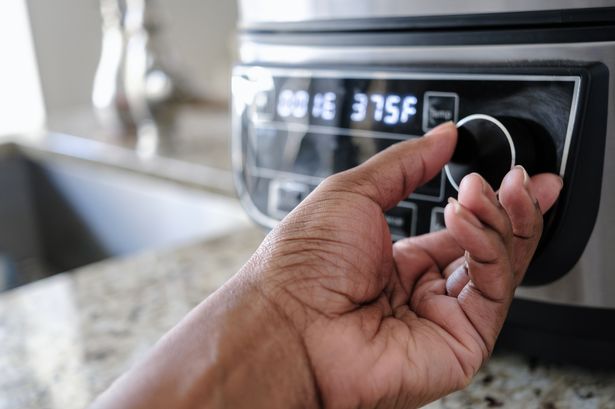Your cart is currently empty!
Urgent warning air fryers could be listening in on families and spying on them

Air fryers, popular kitchen gadgets known for their ability to cook foods using hot air instead of hot oil, have come under scrutiny for potential privacy breaches. A recent study by experts from Which? revealed that certain air fryers sold in the UK have been found to request permissions to eavesdrop on users’ conversations. This revelation has sparked concerns about the extent of data collection and surveillance by smart tech manufacturers.
The research conducted by Which? evaluated air fryers based on criteria such as consent, transparency, data security, data minimisation, trackers, and data deletion. The findings showed that certain air fryer models, including Aigostar, Xiaomi Mi Smart, and Cosori CAF-LI401S, were seeking permissions to access sensitive personal information. For instance, the analysis discovered that these devices requested permission to record audio on users’ phones and track their precise location.
Moreover, the study revealed that some air fryers were connected to trackers from companies like Facebook, Pangle (TikTok for Business), and Tencent, raising concerns about data sharing practices. Both Aigostar and Xiaomi air fryers were found to transmit personal data to servers in China, an aspect that was highlighted in their privacy policies. In response to these findings, representatives from Xiaomi and Cosori emphasised their commitment to privacy and compliance with regulations like GDPR.
The implications of these privacy concerns extend beyond data collection, as there have been reports of safety incidents involving air fryers. Last year, a woman in Greater Manchester experienced a fire hazard with her Tower air fryer, underscoring the importance of maintaining vigilance not only in terms of privacy but also safety when using household appliances.
The Which? study serves as a stark reminder of the need for consumers to be aware of the privacy implications of smart devices, even seemingly innocuous ones like air fryers. As technology continues to intertwine with daily life, it is essential for manufacturers to prioritise consumer privacy and ensure transparent data practices to build trust and safeguard user information.
In conclusion, the research conducted by Which? highlights the intersection of technology, privacy, and safety in everyday household appliances. It underscores the importance of informed decision-making by consumers and responsible data handling by manufacturers to uphold privacy standards in the digital age.
